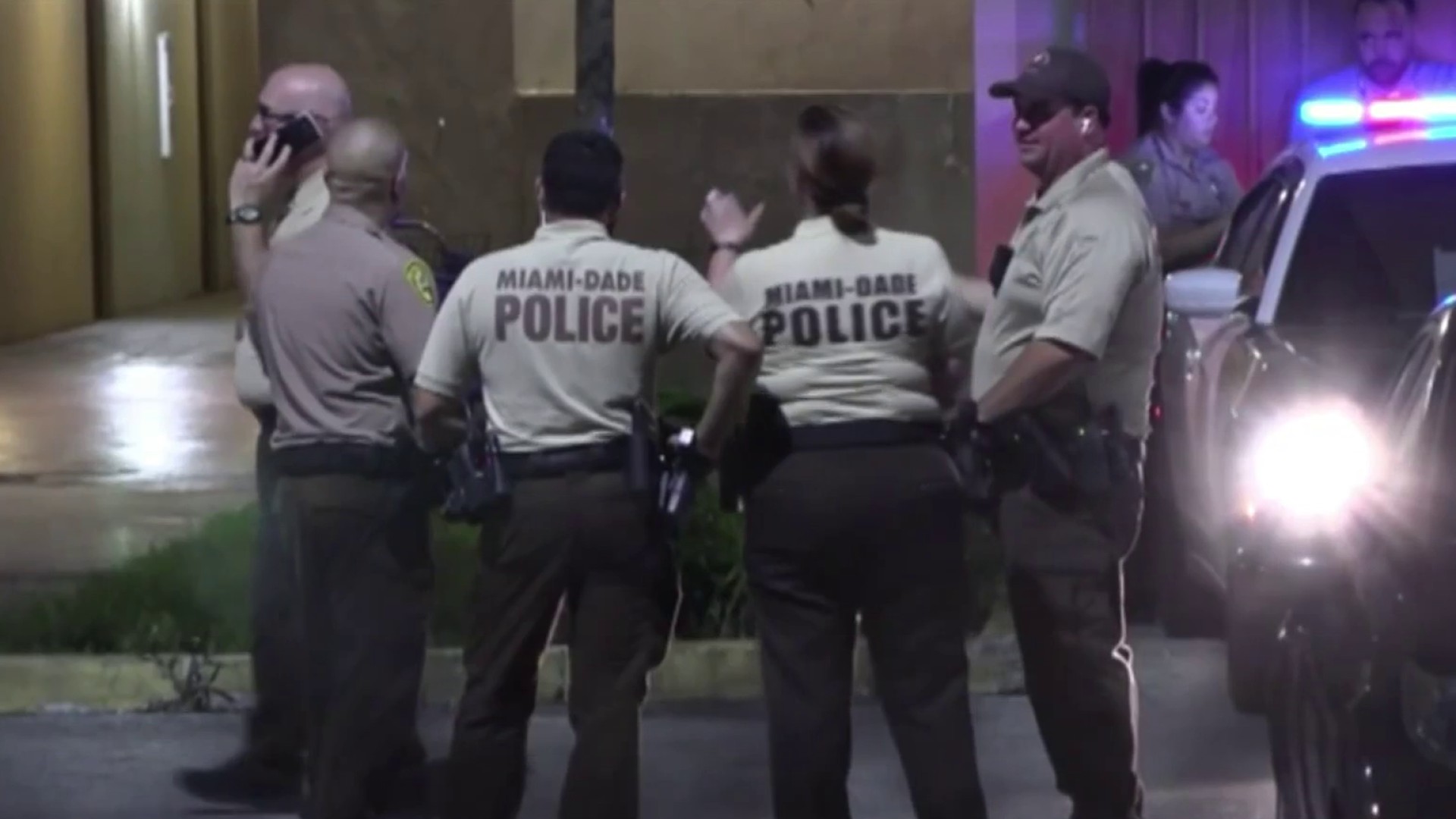UPDATE: Donald Trump has cancelled Friday's appearances in South Florida following the events in Dallas. Click here for more.
A day after a defiant Donald Trump clashed with some anxious Republican lawmakers on Capitol Hill, the presumptive GOP nominee is headed to another potentially contentious spot: Miami.
Trump plans to deliver a speech titled "Succeeding Together'' on Friday in Miami-Dade County, home to the largest Cuban-American population in the U.S. It was the only one of Florida's 67 counties that Trump lost in the state's March 15 primary, an outcome that underscores the billionaire businessman's deep unpopularity among Hispanic voters.
In his speech, Trump plans to touch on President Barack Obama's historic decision to normalize relations with Cuba, emphasizing the country's poor record on human rights. Last year, Trump said he agreed with the concept of opening ties, breaking step with many of his primary rivals. But, he told the Daily Caller, ``I think we should have made a stronger deal.''
Trump is also expected to continue hammering likely Democratic nominee Hillary Clinton on her use of a private email account and server while at the State Department, as well as touch on issues including trade and the economy, according to an aide who spoke on the condition of anonymity, not authorized to share details of Trump's remarks ahead of his speech.
Trump will also meet privately with several dozen Hispanic business, government and religious leaders at the iconic Versailles Cuban Restaurant on Southwest Eighth Street in Miami.
The trip comes after Trump made it clear in a Thursday visit to Capitol Hill that he's of no mind to change his brash approach to the campaign. In a series of meetings with Republican lawmakers, he blamed the media for stumbles that continue to alarm party leaders and excite Democrats with early voting scheduled to start in less than three months.
Local
The New Yorker repeatedly called for party unity, but he also threatened several critics on a day that was designed to rally anxious Republicans behind him. Arizona Sen. Jeff Flake declined to address reports that Trump threatened to attack him politically during a testy exchange that Sen. John McCain said ``everybody was talking about.''
``I'll just leave it,'' Flake told reporters. ``My position remains, I want to support the nomination. I really do. I just can't support him given the things that he's said.''
There was a more cooperative tone inside Trump's meeting with House Republicans, even if skeptical lawmakers didn't necessarily hear all of what they were hoping for.
``There was no talk of pivoting. There was no talk of changing his style or anything like that,'' said Rep. Peter King of New York. ``I think you have to expect that you're going to get Donald Trump. But he showed today that he could be Donald Trump and still work with Republicans.''
Trump's mission Friday is to show he can work to win over Hispanic voters. His declaration in his campaign announcement that Mexico was sending rapists and criminals into the U.S., along with his vows to build a wall along the Southern border and deport all of the estimated 11 million people living in the country illegally have alienated Latino voters nationwide. They make up almost a quarter of the Florida electorate.
``It's really the only swing electorate left in the state _ and it's growing,'' said Florida pollster Fernand Amandi. ``That is very bad news for Donald Trump right now.''
Four years ago, President Barack Obama edged out GOP nominee Mitt Romney in Florida, largely on the strength of his support among Cuban-Americans _ a group that has historically favored the GOP.
But Amandi, whose research spans the state's diverse demographic spectrum, said Trump appears to be underperforming usual Republican benchmarks in the Cuban community as its GOP loyalties are softening. A group that represents people living in the country illegally asked the restaurant hosting Trump on Friday to rescind the invitation.
``The Cuban electorate is not immune to the Trump backlash,'' Amandi said. ``They see, hear and react to the same sort of comments that other Hispanics do, and many view his comments as racist. They are policies they are simply not comfortable supporting.''
Trump may have compounded the problem in February, when he questioned Cubans' favored status in U.S. immigration law that allows Cubans who set foot on American soil to stay and obtain legal status.
``I don't think that's fair. I mean, why would that be a fair thing?'' he told the Tampa Bay Times. ``You know, we have a system now for bringing people into the country, and what we should be doing is we should be bringing people who are terrific people who have terrific records of achievement, accomplishment.''
Supporters, however, argue Trump can grow his support among Hispanic voters. He is ``making an argument about economic security and the safety of your families. That appeals to everyone,'' said Deborah Tamargo, the Republican chairwoman in Hillsborough, who is the granddaughter of immigrants.
Legal immigrants and the children of immigrants, she added, ``appreciate that he's speaking the truth'' about illegal immigration.



